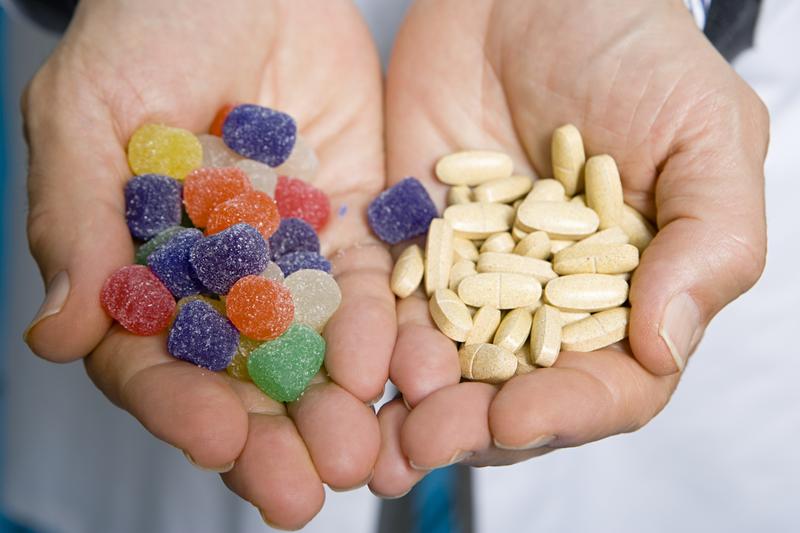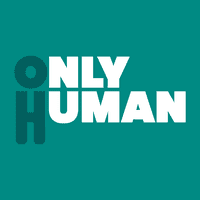MH: So he started looking to see if there was a medical explanation, for the kinds of recoveries he was seeing.
He found it in a study of dental pain that linked the placebo effect to the release of endorphins in the brain.
TK: That watershed in placebo history. And it was that the placebo got some sort of neurobiological explanation. This was not patients were not making this up in their head.
MH:This was in 1978. Researchers knew that for some reason, patients who got their molars removed often reported pain relief even if they only thought they were getting morphine. The doctors wanted to know why. So they divided patients recovering from dental surgery into three groups.
TK:Some people got regular drug and that worked well.
MH: So the first group got morphine. And a real numbing effect.
But the second group didn’t get morphine. They got a placebo -- just salt water. And some of them still felt numb.
TK: They got placebo effects. It was like, you know, not the same as the drug but sometimes almost as much as a drug.
MH: The third group is where things got interesting. Instead of morphine, or saline.
TK: The third group got naloxone.
MH: So if this was just trick medicine, you’d expect the third group to see a placebo effect too.
TK: Those groups didn’t get any placebo effect.
MH: Ted Kaptchuk says that’s because naloxone blocks the effects of those endorphins, which are our bodies’ natural painkiller.
For him, it’s proof that the placebo effect can be tied to chemistry in the brain.
(MUSIC)
MH: But when Ted Kaptchuk arrived at Harvard twenty years later, research like this hadn’t really made an impact. Doctors still thought of the placebo effect as an oxymoron. The effect of a substance with no effect
TK: It was a pejorative. It was a way of dismissing what was a threat on some weird level to the confidence and amazing capacity modern medicine has to use good drugs and use effective surgery and procedures.
MH: The only time these doctors used placebos, they were being dishonest with their patients - administering them as though they were real drugs in clinical trials.
TK: Everyone thinks you have to lie to get a placebo effect or we used to think that. And that deception is involved. It makes the whole question kind of unpleasant and unethical.
MH: So Ted decided to conduct a new clinical study. He asked: what if you gave patients a placebo - but you didn’t lie about it?
Julia Longoria: Can you describe like how’s your week been? Why are we talking on the phone?
TK: It’s been extremely hectic. This I’ve been working every single day.
MH: Our producer Julia Longoria, caught up with one of his study participants on the phone last week.
Linda Buonnano: So I haven’t even had two seconds to home, or even get on the phone and talk to anybody.
MH: This is Linda Buonnano. She has Irritable Bowel Syndrome. Linda’s stress makes her IBS worse, and her condition doesn’t have a clear cause. That’s why Ted Kaptchuk wanted to study it. He doesn’t think he’s going to cure cancer with a placebo, but he thinks he can can manage symptoms like depression or anxiety. And in Linda’s case, her symptom is crippling stomach pain.
LB: I have four children and two of them I had natural. And let me tell you, this is worse than any labor pain. I’m telling you I would rather deliver a child right now than to have IBS.
MH: Linda tried cutting out dairy, gluten. Nothing worked. She heard about Ted’s study for IBS patients on TV. So she went in, and a doctor handed her a bottle of pills, and he was completely honest with her. He said: “these are sugar pills.Take one twice a day for three weeks.”
LB: You know i’m thinking this is crazy. This isn’t really going to solve my problem. But you know, I did whatever he said. He said you have to, when you take it say that this is you know, in your mind that, this is going to work. This is going to help you out. You have to believe that he said.
MH: She says after a couple days, without her even realizing it, her symptoms vanished.
LB: That’s the first time for three weeks that I had no pain as if I had nothing. That’s the only time in 20 years. Picture that. Three weeks out of 20 years.
MH: Linda wasn’t the only one: more than half of the participants got better.
TK: Sixty-two percent said they had adequate relief and the people that had no treatment twenty-seven percent had adequate relief, meaning that their illness spontaneously got better. So what happened in that study is people got better. Now you ask me why they got better. That’s a harder question. Do you want me to try to answer it?
MH: Yeah, go ahead.
TK: When you go to a doctor’s office there’s a waiting room. You walk in. The doctor says a few words. You have to be. The doctor’s a little bit authoritative. You’re a little docile. Even if you’re the President of the United States you have to be a little bit respectful of your doctor. And then they tell you take off your clothes.You’ve really undergone a ritual. A process where you come in and they do things for you. Even without the drugs or the chiropractic manipulation.Something will happen positive.
MH: Ted Kaptchuk calls this the ritual of medicine -- and he thinks this ritual is what activates your brain to begin the process of healing itself. So it wasn’t the pill that made Linda Buonanno feel better - it was everything surrounding the pill. After she was done with Ted’s study, Linda tried her own experiment.
LB: I took those fake ones after that. At the food store.
MH: She went to buy her own sugar pills. Started taking them. Without the doctor. Without the fanfare.
LB: You know. And they did absolutely nothing for me. So that's why I'm thinking. It's definitely a combination of everything together. And I think you have to have trust in your doctor. The way he talked to me. You know. You know he was hopeful. You could feel that he was hopeful for some reason.
MH: Linda told us she’d gone to one other doctor before this study. But that doctor treated her like she was crazy. The doctor in Ted Kaptchuk’s study took her condition seriously. That’s why he thinks a placebo worked.
Just last week, Linda Buonnano got an email that the Harvard lab is going to start another study.
LB: I’m so excited to go see him again, you know. Because I’m hoping to get some relief. I’ll even take another three weeks of feeling fantastic and feeling healthy. I just, I need a break.
MH: This time, Ted Kaptchuk wants to take a look at Linda’s genes. Because not everyone responded as well as she did to the sugar pills. He wants to see if responding well to placebos is maybe something that runs in the family.
MH: So are you imagining a future where someone who’s genetically predisposed to the placebo effect could go to the doctor and be prescribed a sugar pill?
TK: No. Well I have no imagination. That sounds too mechanistic and too...it’s going to be more complex. I’m thinking that if we know somebody has a tendency to respond to the doctor’s clinical interaction, we might start with a lower dosage. We’re not thinking about it in terms of prescribing placebo.But, can I tell you? Let me tell you something. Can I tell you something?
MH: Yeah, of course!
KP: So why do we have a placebo effect? Why can’t we just...um. Why can’t the body just reduce pain and get rid of it quickly by itself? Why do you need a sugar pill and a doctor and a nurse?
MH: Yeah, tell me.
KP: That’s a really interesting question right? Well, if you look at most of the things that placebo treats the ritual medicine they’re actually things you can’t live without. Pain. If we didn’t have pain we would be, if we injured ourselves we imobilize ourselves and start healing. If we didn't have nausea we wouldn't vomit when we ate things that made us sick. If we um, if we didn’t get depressed we wouldn’t change our lives. If we weren’t anxious we wouldn't notice things that were threatening us. If we didn’t have fatigue, we wouldn't lie down and rest. All these things that are really complaints when they’re out of control. Are things that we need to live on. And the human beings have evolved to increase or decrease those things in context.
MH: For Ted Kaptchuk, placebos work not because they cure us - but because they help us manage these essential, human conditions.
And that’s not a role all doctors are necessarily used to playing.
MH: Do you think doctors and patients have different goals here?
TK: Yeah. That’s really sad.
MH: Tell me about that.
TK: That’s really one of my major worries. is you know medicine is really an incredible achievement, biomedicine. But medicine’s also about changing how a person feels and valuing what a person feels. I think there’s an overemphasis on the technology of healing and not on the art of healing. And I’ll be quite simple and say what I think I’m doing is quantifying and making the art of medicine a science.
MH: That was Ted Kaptchuk, he’s the Director of the Program in Placebo Studies and the Therapeutic Encounter at Harvard University.
Now, we want to hear from you. What are the treatments you use that aren’t quite medical...Tell us your placebo stories.


